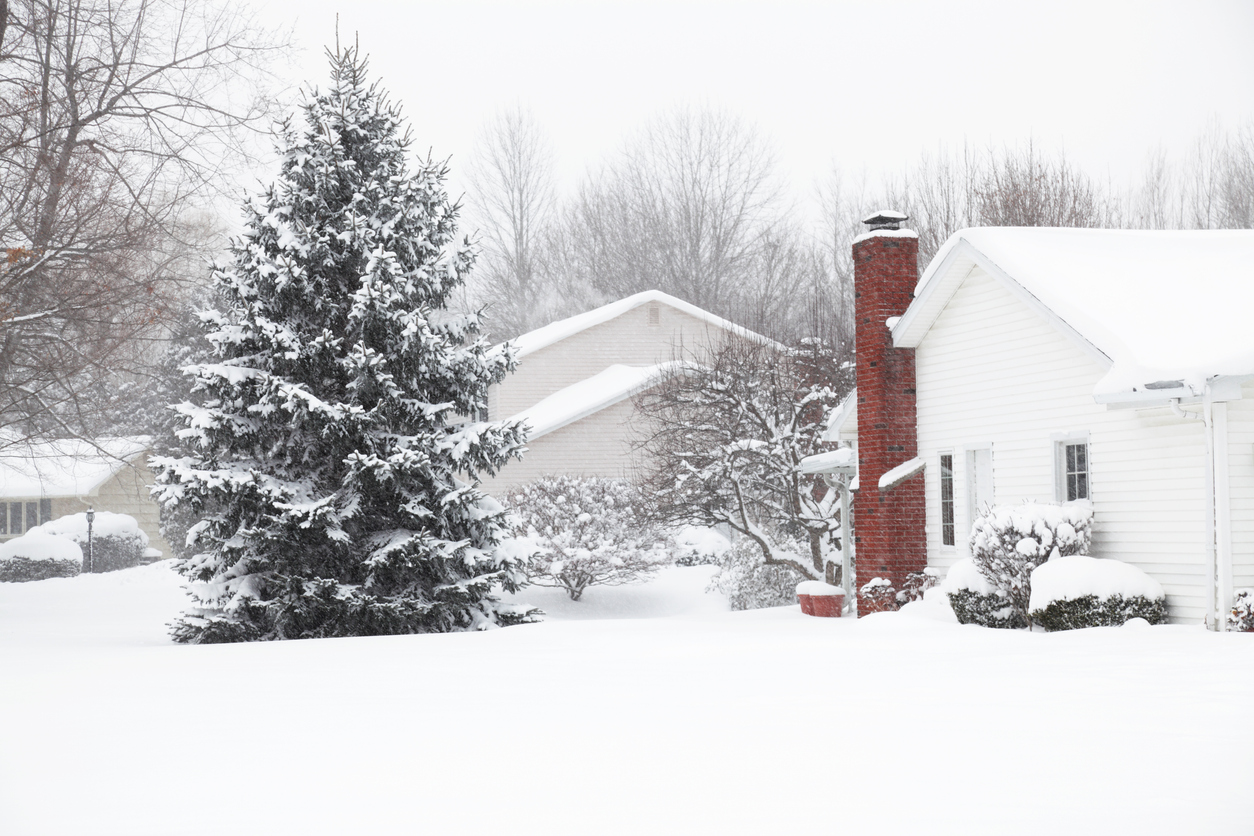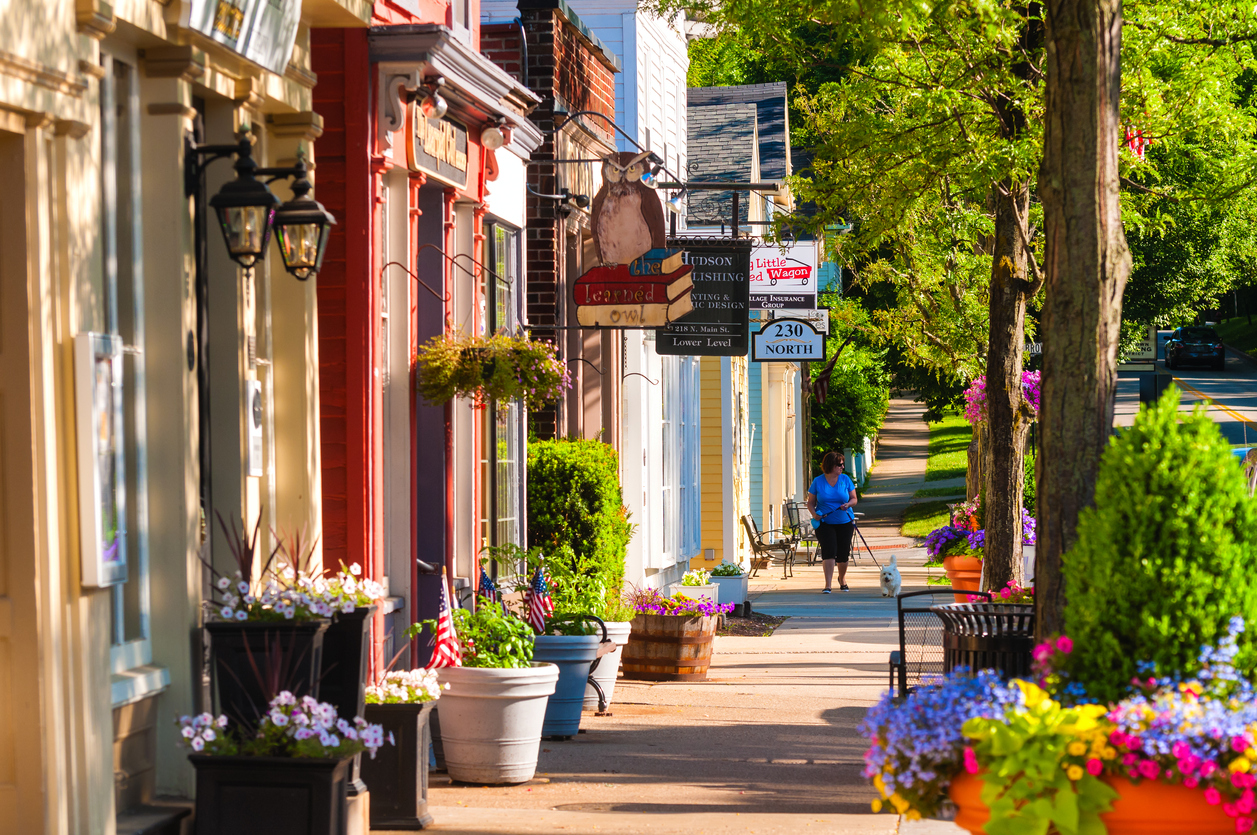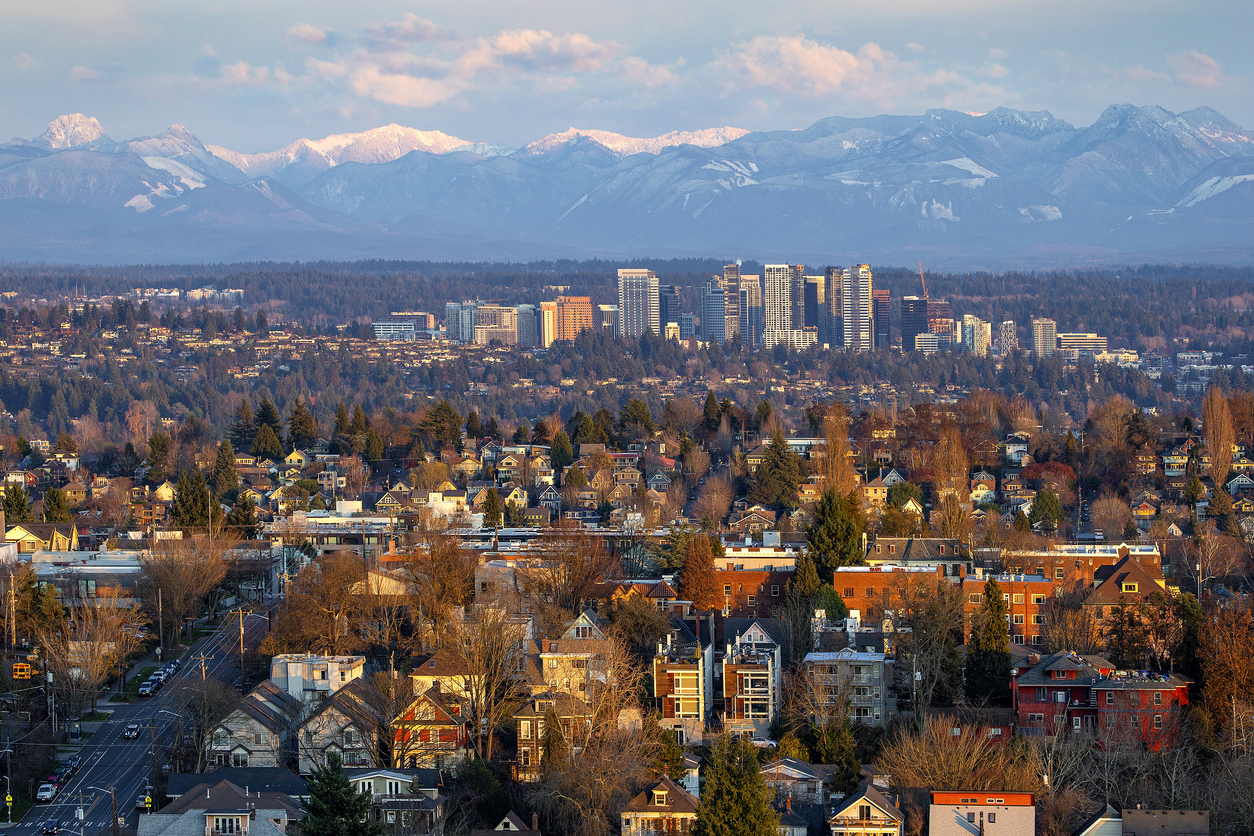We may earn revenue from the products available on this page and participate in affiliate programs. Learn More ›
It’s not uncommon to fantasize about leaving the city for a country oasis or moving to a warmer climate. As remote work models become a mainstay, more people are finding the flexibility to make these hopes a reality. In fact, 49% of adults ages 18-34 have moved or considered moving since March 2020, mainly due to COVID-19 and related events, according to a report from market research firm Ipsos. In addition to changing work conditions, many have relocated for a lower cost of living or to be closer to family.
Though it may be easy to make the decision to move, choosing where to go is another story. As you’re scrolling real estate listings, take a moment to contemplate these 10 considerations for finding a place to live.

Your Ideal Environment
“People often prioritize the house itself over the town in which it resides,” says Alison Bernstein, founder and president of Suburban Jungle, a free online platform that matches users with personal strategists to help them find their next locale. “Selecting the right town is critical to your life and family development,” she adds
So, first, consider the environment that appeals most to your family. Nature lovers will want to look at the town’s access to green space and the number of parks, bodies of water, and farms nearby, while those attracted to urban settings may want to stick to cities or suburban dwellings that offer an easy commute.

Climate
For many people, weather is a crucial factor in deciding where to live. Sun-seekers, for example, are moving in droves to Florida, which, since the beginning of the pandemic, has seen an influx of new residents. According to move.org, in fact, Florida was the No. 1 place people moved to in 2020. Others may want to trade in their beach chair for a pair of skis, so locations with snowy winters will be appealing. Add to your research online monthly weather reports and average temperatures.
RELATED: 16 American Cities That Have Never Seen Snow

Walkability
A town’s walkability is a common consideration among buyers, according to Bernstein. Some home shoppers are content with easy access to a post office and a place to get coffee, while others prefer to have a plethora of restaurants and local shops within walking distance. Those with school-aged children may want the option of walking to school, or if someone in the home commutes, a quick stroll to the train station will add convenience. You can find a town’s walkability score online.
RELATED: The 25 Most Walkable Cities in the United States

The Vibe
A small town will have a very different vibe than an urban oasis. Consider which suits your family best: quiet suburban streets, holiday parades, and town football games, or a bustling downtown and plenty of anonymity. An excellent way to get to know the feeling of a location is to spend a weekend exploring, visiting local shops and restaurants, and chatting with locals.

Affordability
When considering the affordability of a town, it’s essential to look not only at house prices but also local tax types and rates since they can add significantly to your yearly expenses. You’ll also want to think about the cost of living expenses, including utilities, groceries, local activities, and transportation.
RELATED: 15 of the Cheapest Places to Buy a House in the U.S.

Like-Minded Residents
Finding a spot that feels like home will include connecting with a group of people with similar interests and values. Get to know the town’s political leanings, spiritual opportunities, and available community groups and programs. Joining a prospective town’s online groups will let you know what residents are talking about and what opportunities are available.

Distance to Support Network
According to a Pew Research Center study, a top reason cited for moving during the pandemic was to be closer to family. As you begin your home search, it’s important to decide how far you’re willing to travel to see loved ones. Having a support network nearby can be helpful, especially for those with young children and aging adults.

Schools
A common priority for families looking to relocate is the quality of the schools. While doing your research, be sure to look beyond online ratings, which are largely based on achievement tests rather than accurately reflecting what an educational institution has to offer. Consider touring local schools and speaking with administration, teachers, and parents to get a fuller picture. In addition to the quality of instruction, also consider the diversity of the student body as well as the socioemotional, arts, and athletic programs available.

Culture and Entertainment
If your idea of a perfect weekend includes a dose of art or history followed by some live music, then make sure to scope out a town’s access to historic sites, art galleries, theaters, music venues, and other performance spaces. At the very least, choose a suburb with easy access to these opportunities.

Commute or Nearby Employment Opportunities
Access to employment is an essential consideration when choosing a town. For those who plan to commute, proximity to transportation can make or break a location. A quick online search will show you the closest train station, bus depot, and airport. If you plan to seek employment nearby, check out the local job market and the income potential for your skillset.


